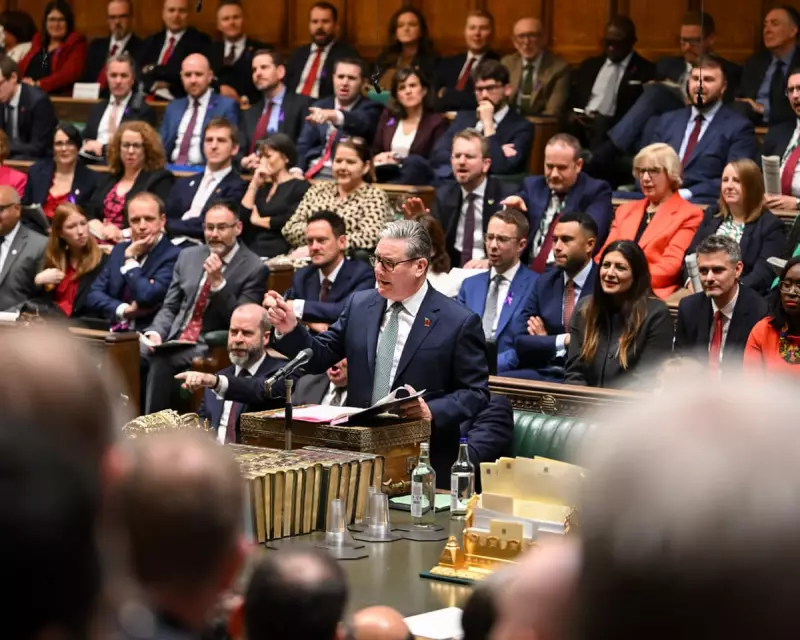
Major Security Breach in Parliament
Two men have been arrested in connection with a serious security breach at the House of Commons, where a mobile phone was allegedly hidden with the intention of playing sex noises during Prime Minister's Questions. The device was discovered during a routine security sweep of the chamber, positioned strategically near the frontbench where senior politicians gather for the weekly parliamentary showdown.
The Planned Disruption
According to police investigations, the phone was deliberately placed to cause maximum disruption during the key weekly confrontation between Labour leader Keir Starmer and Business Secretary Kemi Badenoch in September. The Metropolitan Police confirmed that the device was found at 10:25 on Wednesday 3 September during standard security procedures.
A police spokesperson stated: "Enquiries led officers to believe that the phone was purposely placed in a location with the aim of causing disruption to business in the House." The incident has been treated with utmost seriousness as it represents a significant breach of parliamentary security protocols.
Arrests and Investigation
A man in his 30s was arrested on Friday 5 September on suspicion of attempting to intentionally cause a public nuisance. This was followed by the arrest of a second man in his 60s on Tuesday 30 September on the same charges. Both individuals have been released on bail pending further investigation.
The Metropolitan Police emphasised that they are maintaining regular communication with parliamentary authorities, stating: "Enquiries remain ongoing and we continue to keep the speaker and clerk of the house up to date with our investigation."
Security Fallout
The discovery prompted immediate heightened security measures throughout the parliamentary estate. Audio tours and guided visits were cancelled indefinitely, while access to the Commons chamber was significantly restricted. The House of Lords followed suit as a precautionary measure, implementing similar restrictions to their chamber.
The security breach occurred during a particularly vulnerable period for parliamentary security, as hundreds of Westminster security staff were on strike over disputes concerning pay and working conditions. The Public and Commercial Services Union cited several grievances including reduced annual leave entitlements, stagnant pay rates, and concerns about ethnicity pay gaps.
As a direct result of the industrial action, visitors had already been banned from the parliamentary estate, though this additional security incident has raised serious questions about the resilience of parliamentary security systems during periods of staff shortages.





